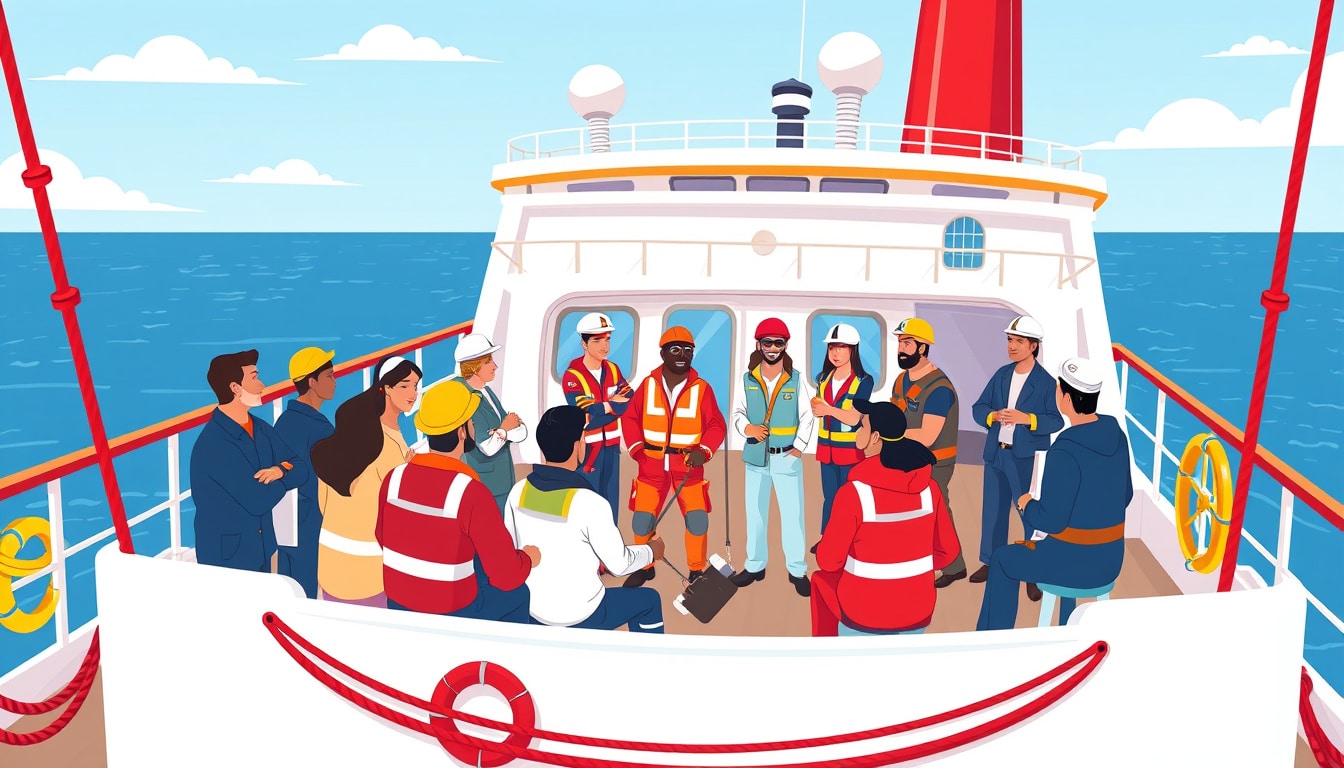In today’s interconnected world, the safety and security of ports and marine facilities are paramount. This is where the role of a Certified Port / Marine Facility Security Officer (PFSO/MFSO) becomes crucial. These professionals are at the forefront of protecting critical infrastructure and ensuring compliance with international regulations. In this article, we will explore the multifaceted role of PFSOs and MFSOs, discuss the international standards that govern port security, outline their key responsibilities and training requirements, and provide best practices for enhancing port safety globally.
Learn more about our Courses here!
Key Takeaways
- A Certified Port/Marine Facility Security Officer (PFSO/MFSO) plays a crucial role in safeguarding port operations.
- International standards and regulations provide a framework for effective port security management.
- Key responsibilities of a PFSO/MFSO include risk assessment, security planning, and emergency response coordination.
- Training for PFSOs/MFSOs emphasizes knowledge of security protocols and the ability to implement safety measures.
- Adopting best practices is essential for enhancing overall port safety and security effectiveness.
Understanding the Role of a PFSO/MFSO
In today’s complex maritime security landscape, the role of a Certified Port / Marine Facility Security Officer (PFSO/MFSO) is pivotal in ensuring port safety around the world. These professionals are tasked with the responsibility of developing and implementing security plans that align with international maritime regulations, including the International Ship and Port Facility Security (ISPS) Code. By conducting thorough risk assessments and maintaining constant vigilance, PFSOs and MFSOs play a crucial role in safeguarding against potential threats such as terrorism, smuggling, and piracy. Their duties extend beyond mere surveillance; they also involve coordination with local law enforcement, emergency responders, and various stakeholders to ensure a comprehensive approach to security. Furthermore, certified officers are instrumental in training port and facility personnel, fostering a culture of awareness and preparedness that is essential in today’s ever-evolving security environment. Ultimately, the expertise and proactive measures taken by PFSOs and MFSOs are vital for maintaining the integrity and safety of maritime operations globally.
International Standards and Regulations for Port Security
In today’s interconnected global economy, the security of international trade routes and port facilities is paramount, which is why various international standards and regulations have been established to govern port security. A Certified Port / Marine Facility Security Officer (PFSO/MFSO) plays a crucial role in maintaining this security. These professionals are trained to ensure compliance with high standards of safety and security protocols mandated by organizations such as the International Maritime Organization (IMO) and the International Ship and Port Facility Security Code (ISPS Code). Their responsibilities include conducting security assessments, developing security plans, and coordinating response actions to threats or incidents. By adhering to stringent international regulations, certified PFSOs and MFSOs help to mitigate risks, thereby fostering safer and more secure marine environments worldwide. This not only protects cargo and vessels but also reassures businesses and consumers, emphasizing the importance of effective port security measures for the global trade landscape.
Learn more about our Courses here!
Key Responsibilities and Training Requirements
The role of a Certified Port / Marine Facility Security Officer (PFSO/MFSO) is critical in safeguarding the security of ports and marine facilities worldwide. These professionals are tasked with implementing security measures, conducting risk assessments, and ensuring compliance with international security regulations. Key responsibilities include developing and maintaining security plans, managing access control, and training facility staff on emergency procedures. To become a certified PFSO/MFSO, candidates must undergo comprehensive training that covers various aspects of maritime security standards, threat assessment, and crisis management. This specialized training ensures that certified officers are well-equipped to handle potential security breaches and enhance overall port safety operations. In an industry that is integral to global trade, the expertise of PFSOs/MFSOs is essential for not only protecting ships and cargo but also for maintaining the integrity of the global supply chain.
Best Practices for Enhancing Port Safety
In today’s global trade environment, ensuring port safety is paramount, and the role of a Certified Port / Marine Facility Security Officer (PFSO/MFSO) is critical in achieving this goal. Best practices for enhancing port safety involve a multifaceted approach that includes rigorous training, regular security assessments, and the implementation of advanced technologies. The PFSO/MFSO is responsible for developing and overseeing the security plan, conducting drills with the port staff, and ensuring compliance with international maritime security standards. By focusing on risk management and creating a culture of safety among all personnel, ports can significantly mitigate threats such as smuggling or terrorism. Additionally, frequent collaboration with local law enforcement and maritime authorities ensures that ports are not only meeting regulatory requirements but are also at the forefront of maritime security innovation. In an age where global logistics are under constant scrutiny, the effectiveness of a Certified Port / Marine Facility Security Officer (PFSO/MFSO) lies in their proactive measures and commitment to fostering safe maritime environments worldwide.
À Propos de Nous
Académie Maritime Virtuelle (VMA) is a leading provider of online maritime education and training, offering a wide range of courses designed to meet the needs of the global maritime industry. With a commitment to quality and innovation, Virtual Maritime Academy is dedicated to preparing seafarers and maritime professionals for success in their careers. Now a DNV Certified Maritime Training Provider, the academy upholds the highest standards of excellence in training and education.




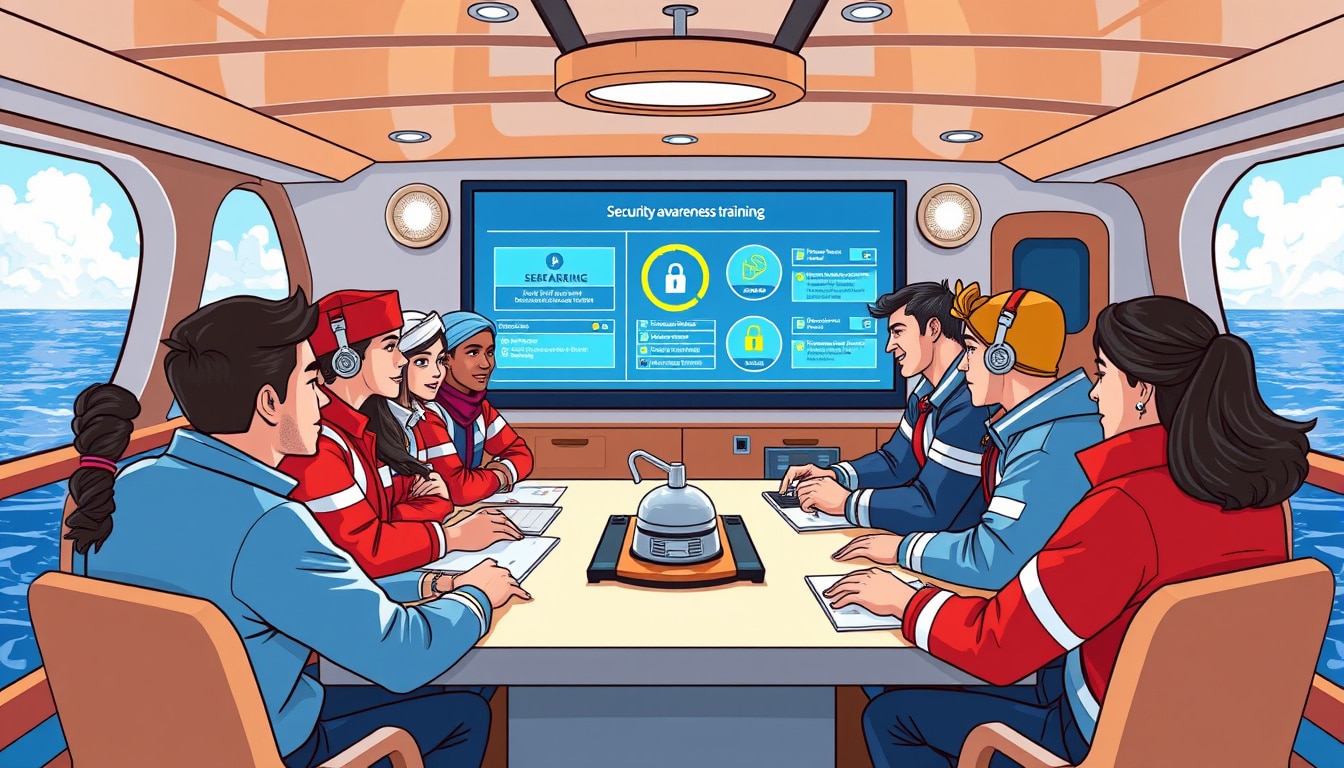

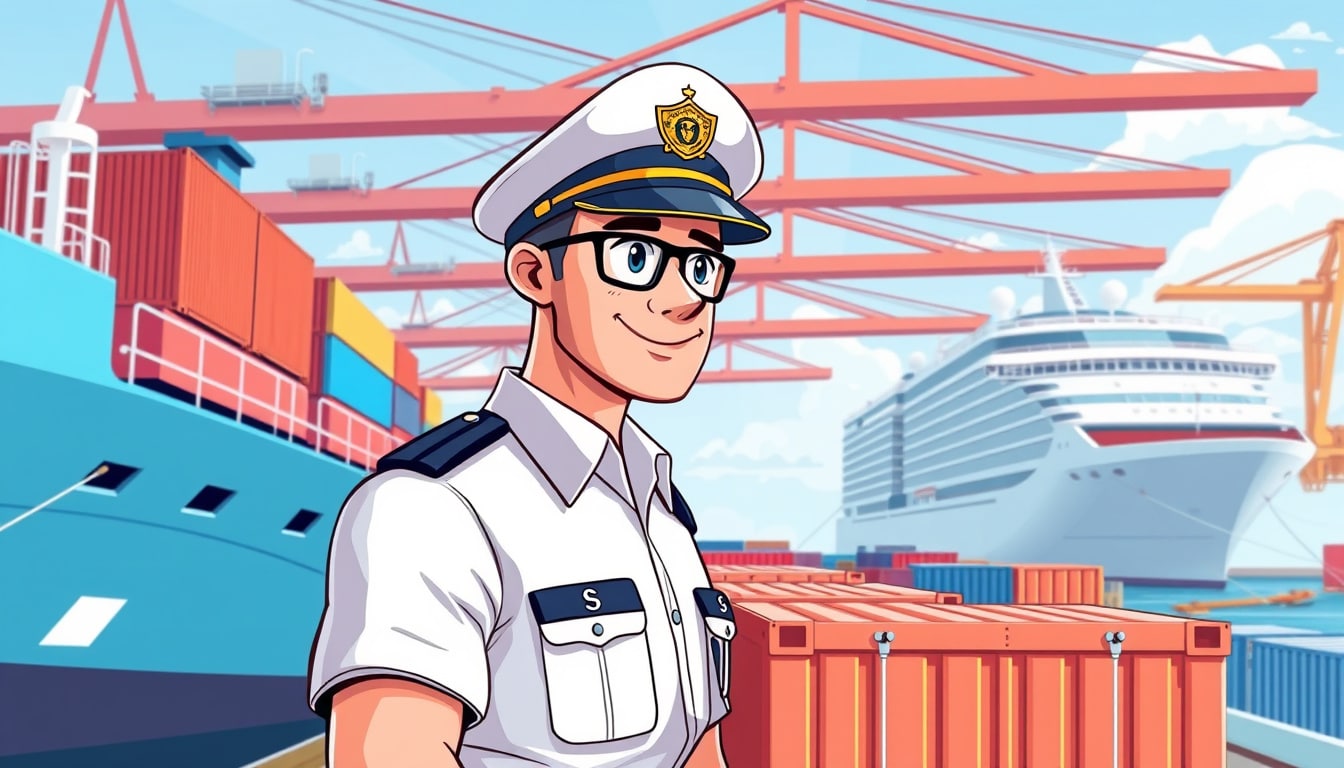




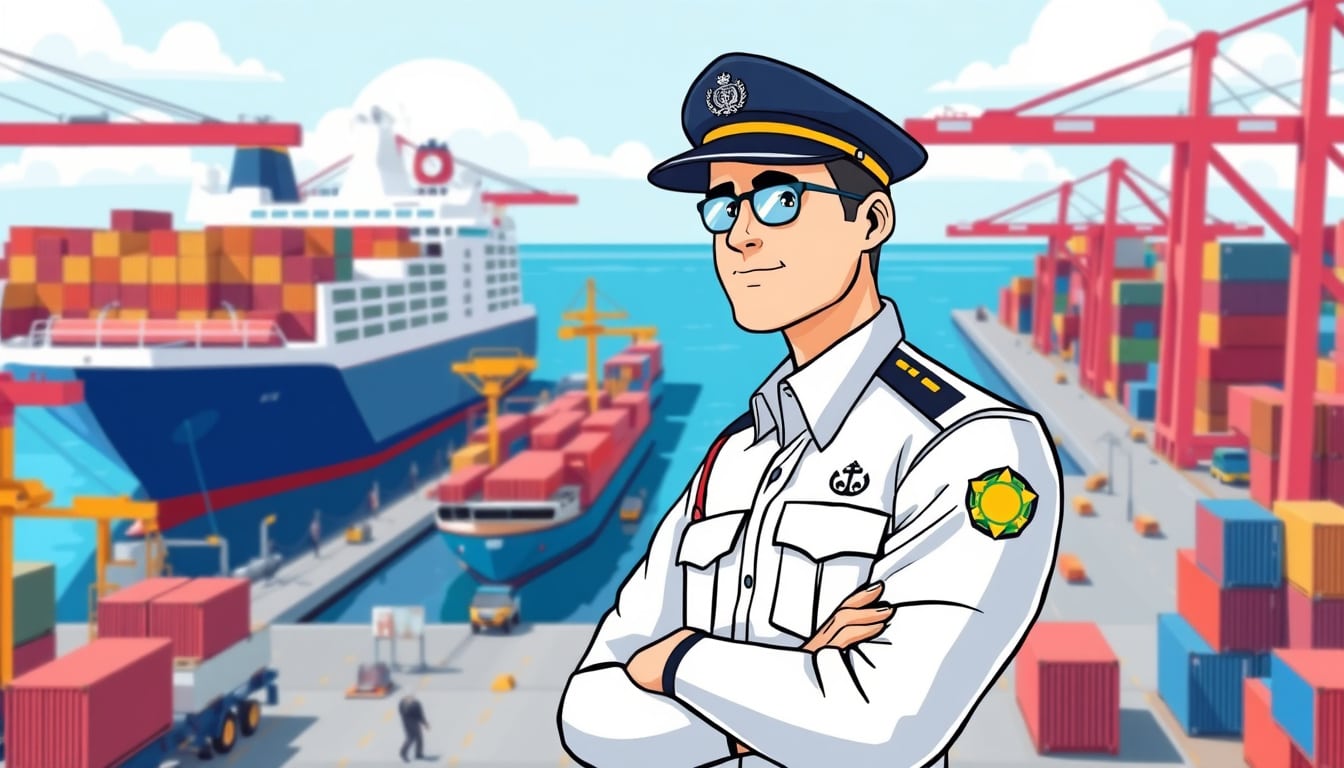

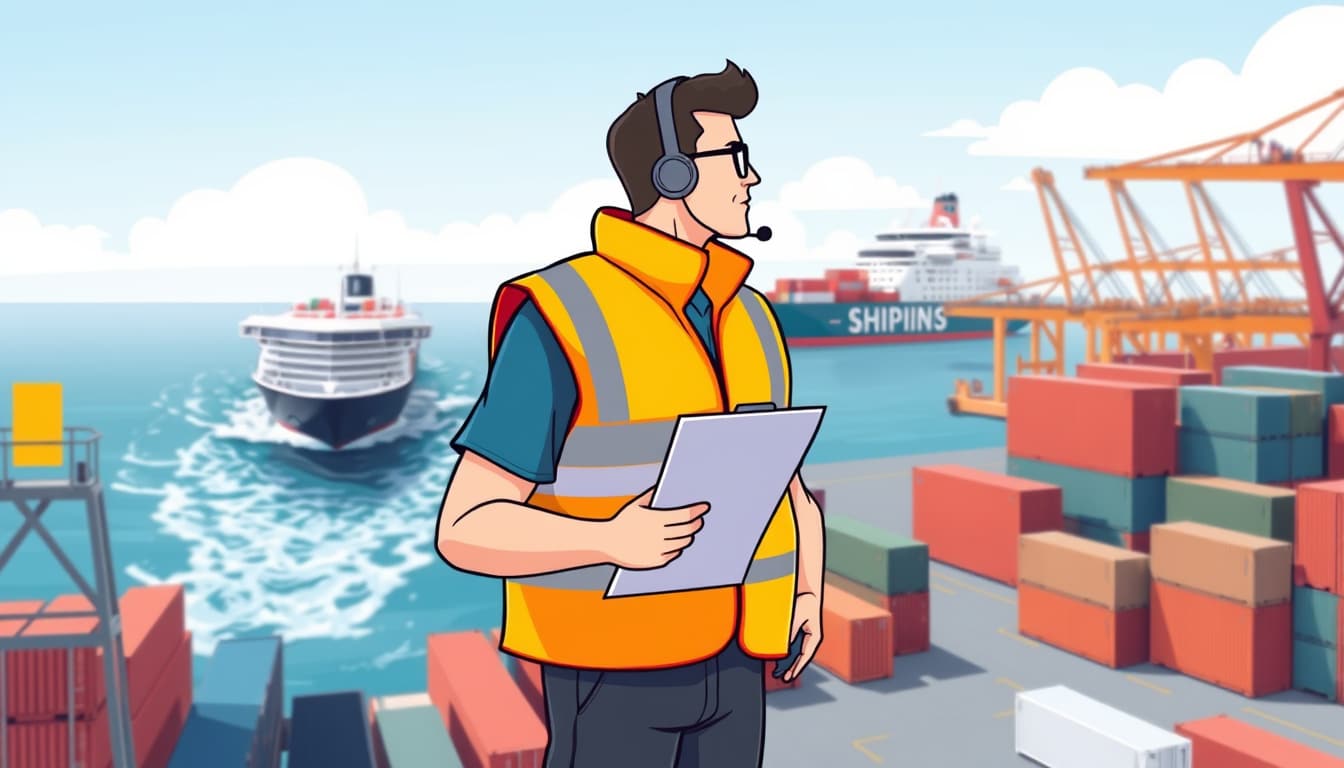
’ style=’display: block; margin: auto; max-width: 100%; height: auto;’></p><h2>Key Takeaways</h2><ul><li>A Designated Person Ashore (DPA) serves as a vital link between ship operations and shore management.</li><li>Regulatory compliance necessitates that every shipping company appoints a DPA to enhance safety and operational efficiency.</li><li>Having a DPA improves communication and accountability, leading to better decision-making on board and ashore.</li><li>Effective implementation of the DPA role can mitigate risks and ensure adherence to safety and environmental standards.</li><li>Investing in a DPA fosters a culture of safety and continuous improvement within the shipping organization.</li></ul><h3>Understanding the Role of a Designated Person Ashore (DPA)</h3><p>In the complex world of maritime operations, the role of a Designated Person Ashore (DPA) is crucial for every shipping company. This key position ensures the smooth functioning of safety management systems and compliance with international regulations. With the growing emphasis on maritime safety and the increasing intricacies of shipping operations, the importance of a DPA cannot be overstated. Essentially, the DPA serves as the liaison between the shore management and the vessel, facilitating effective communication and oversight of safety and environmental protection measures. Every shipping company needs a DPA to not only enhance operational efficiencies but also to foster a culture of safety that minimizes risks at sea. By having a dedicated professional focused on safety and quality, companies can better navigate the regulatory landscape, ultimately safeguarding their crew, vessels, and the marine environment. Thus, understanding the importance of a Designated Person Ashore is vital for shipping companies aspiring to maintain high standards of operational integrity and professionalism.</p><h3>Regulatory Requirements and Compliance for DPAs</h3><p>In the intricate world of maritime operations, understanding the regulatory requirements and compliance for Designated Persons Ashore (DPA) is crucial for every shipping company. A DPA serves as a vital link between the ship and the shore, overseeing the vessel’s safety management systems and ensuring adherence to international regulations, particularly those set by the International Maritime Organization (IMO). With regulations tightening globally, ensuring that your shipping company appoints a qualified DPA is not just a best practice; it’s a legal necessity. Having a DPA in place provides a clear channel for communication, facilitates accident response protocols, and guarantees that safety regulations are respected throughout the fleet. This is why every shipping company needs a Designated Person Ashore to navigate the complexities of maritime law and ensure compliance, ultimately safeguarding both personnel and cargo.</p><blockquote><p>‘The best way to predict the future is to create it.’ — Peter Drucker</p></blockquote><p><a href=) Learn more about our Courses here!
Learn more about our Courses here! 


